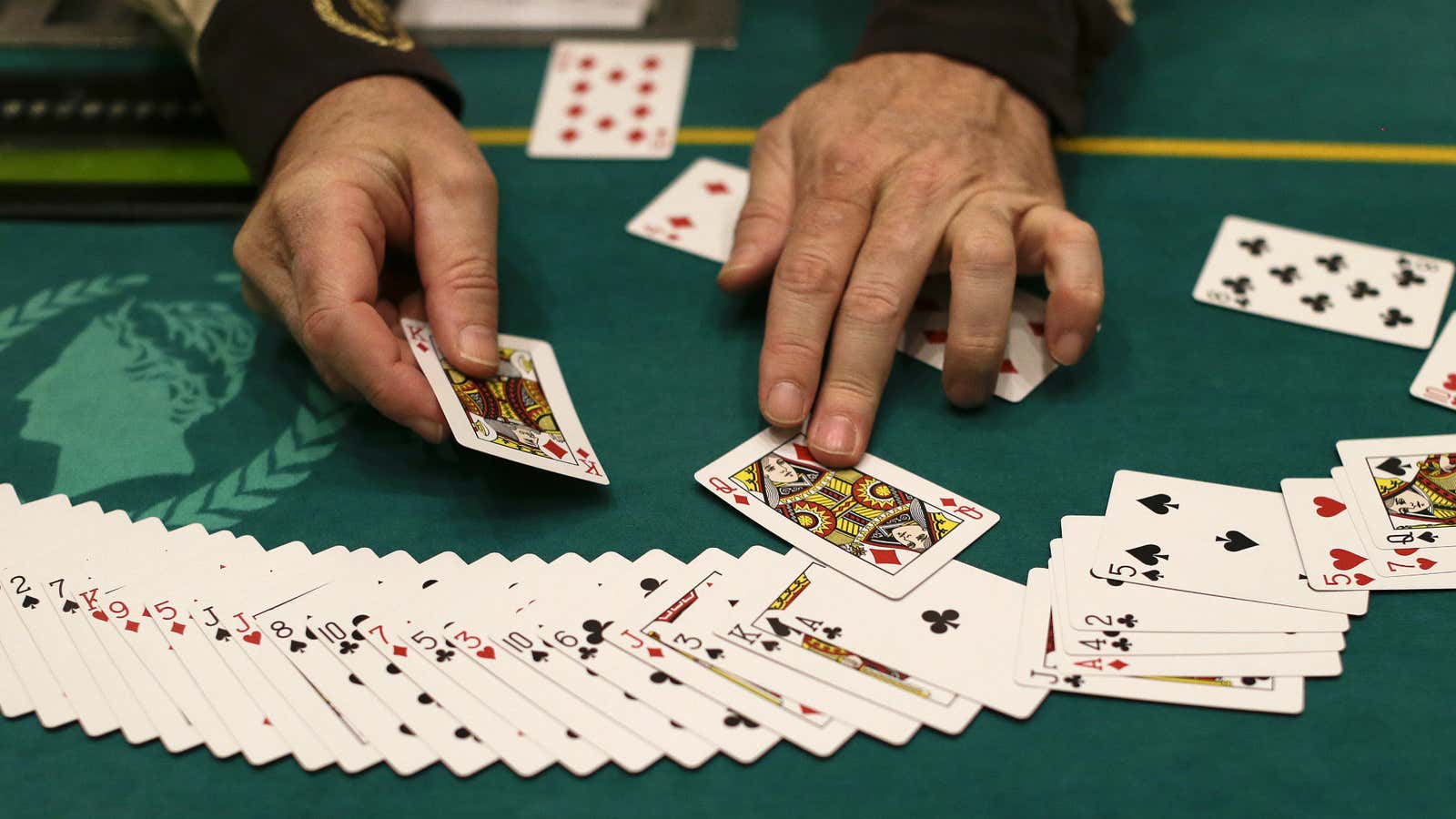If you can drink a beer and eat a hot dog while you do it, a wise man—my father—once said, it’s not a sport, it’s a game.
The veracity of this claim will be tested soon in Britain’s courts, where bridge players are challenging the government’s decree that their beloved pastime fails to qualify as a sport.
“We are sick of being told that what we do is less important because we don’t sweat enough,” English Bridge Union vice chairman Ian Payn told the Wall Street Journal (paywall). It’s not just a matter of pride. Classification as a sport opens the door to money from Sport England, the state agency that funds non-professional athletics.
The bridge union has already lost a challenge to the national tax service to give bridge the same tax benefits as officially-recognized sports such as tennis and rowing.
Sport England officials argue that recognizing bridge could be a gateway to other sedentary games—chess, whist, even Scrabble, for God’s sake—that would “dilute” its “precious funding,” director Phil Smith told the BBC. ”It’s Sport England’s job to get the nation fitter,” he said. “And although bridge is a fantastic pursuit… it certainly isn’t getting the nation any fitter.”
But not all of Sport England’s officially-recognized sports are obvious sweatfests. Bridge lovers are trying to get on a list that includes snooker, fishing, model aircraft flying, and quoits, which is sort of a British answer to the US game, horseshoes. Competitive bridge has the quiet intensity of televised poker or chess, and similar levels of physical activity.
Britain’s Royal Courts of Justice will rule on the issue in April 2016. Regardless of the outcome, there’s still hope for disenfranchised bridge fans–organizers have invited bridge, chess, and tug of war to apply for the 2020 Olympic Games in Tokyo.
